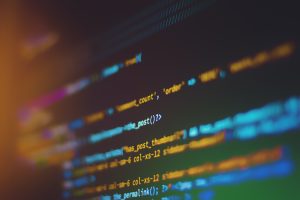AI and Commodification of Religion

Johan Eddebo is a researcher at the Centre for Multidisciplinary Research on Religion and Society(CRS), Uppsala University. The post is a part the Sacralization of AI series.
“In the beginning was the word. Language is the operating system of human culture. From language emerges myth and law, gods and money, art and science, friendships and nations and computer code. A.I.’s new mastery of language means it can now hack and manipulate the operating system of civilization. By gaining mastery of language, A.I. is seizing the master key to civilization, from bank vaults to holy sepulchers.
What would it mean for humans to live in a world where a large percentage of stories, melodies, images, laws, policies and tools are shaped by nonhuman intelligence, which knows how to exploit with superhuman efficiency the weaknesses, biases and addictions of the human mind — while knowing how to form intimate relationships with human beings? In games like chess, no human can hope to beat a computer. What happens when the same thing occurs in art, politics or religion?”
—Yuval Harari, Tristan Harris, and Aza Raskin [1]
The words of Harari et al. above are symptomatic of contemporary technological culture’s preoccupation with spectacular AI—with the awesome and almost redemptive promises attributed to this really not-so-novel form of technology through what’s perhaps best described as a highly effective viral marketing endeavour.


 This blog series explores some threats that digital technologies can create to freedom of religion or belief and other human rights. It starts with
This blog series explores some threats that digital technologies can create to freedom of religion or belief and other human rights. It starts with